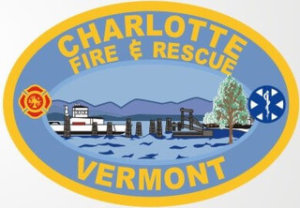Sex discrimination alleged in fire and rescue service
In 2016, there were an equal number of men and women in leadership positions in the Charlotte Fire and Rescue Department.
By April of this year, when Rob Mullin was terminated as deputy chief, the department only had one female in a leadership position, according to a source close to the department.
 A number of current and former members of the department, who only agreed to speak on the condition of anonymity for fear of retaliation, said the drop in females was due to sexual discrimination by Mullin and that he promoted men to leadership positions with the department, passing over women who had more tenure and equal or superior training during those six years.
A number of current and former members of the department, who only agreed to speak on the condition of anonymity for fear of retaliation, said the drop in females was due to sexual discrimination by Mullin and that he promoted men to leadership positions with the department, passing over women who had more tenure and equal or superior training during those six years.
As the selectboard started discussions about the possibility of changing to a municipal-run fire and rescue service, it has held at least two executive sessions that only included members of the board and Mullin.
The Charlotte News has run stories where it was speculated the board might be considering hiring Mullin as a consultant to oversee a potential transition. But selectboard member Matt Krasnow said the board has not been talking to Mullin about that role.
Instead, Krasnow said, Mullin has been lending his experience running a fire and rescue department to help the board develop a request for proposal to seek candidates for a temporary position as a transition consultant.
Mullin might apply for that position, Krasnow said, but he doesn’t know. He also said he didn’t know about allegations against Mullin of sexual harassment and bias.
Allegations about him and sexual discrimination or harassment are “lies,” Mullin said. He didn’t know if he would apply to be the transition consultant.
Mullin said he didn’t know how many women were in leadership positions with the department when he left, but that he had hired and trained many women.
Some board members didn’t return calls. Others who did return calls and spoke off the record said they were unaware of sexual discrimination allegations against Mullin.
One person who did speak on the record was Thomas Gates, a volunteer firefighter with the fire department.
Gates said Mullin was terminated “for very good cause. In fact, he could have, should have and would have been fired from anywhere else.”
Mullin was terminated for “blatant sexual harassment and gender bias with regards to hiring, promotion, and therefore, pay equity,” Gates said.
“Those are false accusations,” said Mullin, adding he was terminated because he was unable to perform his duties because his emergency medical services license was restricted. The fire and rescue department was unhappy with his job performance and assigned him a “performance improvement plan” that the department said he didn’t fulfill in a timely manner.
Mullin said his termination was a unanimous decision by the fire and rescue department’s board of directors.
Firefighter Gates said the Charlotte Fire and Rescue Service has recently reached an out-of-court settlement with a female employee who is no longer working for the department.
According to Gates, the employee’s suit was based in large part on the fact she was trained and certified as an advanced emergency technician, is a crew chief on two other rescue departments and is a training crew chief with at least one other department, yet at least three males with less seniority, training or experience were promoted to leadership positions over her.
It is in part a pay equity disparity issue because crew chiefs are paid $3 an hour more, Gates said.
“Mullin was the one sole person who decided whether or not these young female employees got promoted from driver to crew chief,” he said.
Mullin contends that both he and the assistant fire chief, who is also no longer with the department, made decisions together about whether a person would be promoted. He said it was just one female employee who objected to not being promoted and that he had heard from other departments that she should not be promoted.
Gates said he went to the Charlotte Fire and Rescue Service board of director’s meetings during the winter of 2020 and told them about allegations of potential gender bias with regards to hiring, promotion and pay equity.
Gates alleges that Mullins told a female employee “if she didn’t wear leggings in the station, guys wouldn’t stare at her ass.”
Mullin told a different version of this incident and said he just told a female member of the department: “You should be wearing your uniform in the station.”
A number of former and current employees of the fire and rescue service have talked with the newspaper about an out-of-court settlement, but none of them knew, or at least didn’t reveal, how much it was for. Some have said this is not the only out-of-court settlement the fire and rescue service has reached.
Krasnow said he is unaware of out-of-court settlements the fire and rescue service has reached, but this is exactly why the selectboard is considering a transition to a municipal department. Having a municipal service would give the selectboard more oversight and control, he said.
The fire and rescue service budget is almost a third of the town’s budget, Krasnow said.
At Town Meeting Day this year, voters approved an appropriation of more than $890,000 for the fire and rescue department. Added to that figure is about $100,000 the town typically allocates annually to the Charlotte Fire and Rescue Service’s reserve fund each year.
“It’s much closer to $1 million coming from the town,” Krasnow said.
The selectboard doesn’t have any oversight over how this money is spent, he said.
The fire and rescue department budget is different than the budgets for other town departments, boards, commissions and committees because those other town entities have to get approval from at least three selectboard members before large expenses are paid.
The fire and rescue department gets a check each month for one twelfth of the fire department budget’s annual budget that town voters have approved. The selectboard doesn’t have any oversight process for reviewing or questioning how the fire and rescue funds are spent.
Selectboard members who agreed to only talk off the record said this is one of the reasons they would like to switch to a municipal department, so they have more control over the fire and rescue budget and expenses they have heard about, but can’t confirm, such as fines for expired drugs, for violations of safety protocols or for out-of-court settlements.
Related Stories
Popular Stories
If you enjoy The Charlotte News, please consider making a donation. Your gift will help us produce more stories like this. The majority of our budget comes from charitable contributions. Your gift helps sustain The Charlotte News, keeping it a free service for everyone in town. Thank you.
Bill Regan, Chair, Board of Directors







